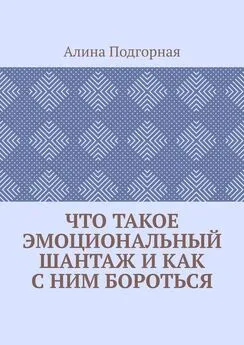Полина Лосева - Против часовой стрелки. Что такое старение и как с ним бороться
- Название:Против часовой стрелки. Что такое старение и как с ним бороться
- Автор:
- Жанр:
- Издательство:Альпина нон-фикшн
- Год:2020
- Город:Москва
- ISBN:978-5-0013-9314-6
- Рейтинг:
- Избранное:Добавить в избранное
-
Отзывы:
-
Ваша оценка:
Полина Лосева - Против часовой стрелки. Что такое старение и как с ним бороться краткое содержание
В своей книге биолог и научный журналист Полина Лосева выступает в роли адвоката современной науки о старении и рассказывает о том, чем сегодня занимаются геронтологи и как правильно интерпретировать полученные ими результаты. Кто виноват в том, что мы стареем? Что может стать нашей защитой от старости: теломераза или антиоксиданты, гормоны или диеты? Биологи пока не пришли к единому ответу на эти вопросы, и читателю, если он решится перейти от размышлений к действиям, предстоит сделать собственный выбор.
Эта книга станет путеводителем по современным теориям старения не только для биологов, но и для всех, кому интересно, как помочь своему телу вести неравную борьбу со временем.
Против часовой стрелки. Что такое старение и как с ним бороться - читать онлайн бесплатно ознакомительный отрывок
Интервал:
Закладка:
504
Franceschi C. et al. The continuum of aging and age-related diseases: common mechanisms but different rates // 2018 Mar; 5: 61.
505
Aktipis C. A. et al. Cancer across the tree of life: cooperation and cheating in multicellularity // Philosophical Transactions of the Royal Society B. 2015 Jul; 370 (1673).
506
Hanahan D. & Weinberg R. A. Hallmarks of cancer: the next generation // Cell. 2011 Mar; 144 (5): 646–674.
507
Carvalho S., Gueiral N., Nogueira E., Henrique R., Oliveira L., Tuchin V. V. Glucose diffusion in colorectal mucosa – a comparative study between normal and cancer tissues // Journal of Biomedical Optics. 2017 Feb; 22 (9): 091506.
508
Chatsirisupachai K., Palmer D., Ferreira S., de Magalhães J. P. A human tissue‐specific transcriptomic analysis reveals a complex relationship between aging, cancer, and cellular senescence // Aging Cell. 2019 Sep; 18 (6): e13041.
509
Campisi J. Senescent cells, tumor suppression, and organismal aging: good citizens, bad neighbors // Cell. 2005 Feb; 120 (4): 513–522.
510
Peto R., Joe F. J., Lee P. N., Clack J. Cancer and ageing in mice and men // British Journal of Cancer. 1975 Oct; 32: 411–426.
511
Caulin A. F. & Maley C. C. Peto's Paradox: evolution's prescription for cancer prevention // Trends in Ecology & Evolution. 2011 Apr; 26 (4): 175–182.
512
См. п. 36.
513
См. п. 80.
514
Zuckerman V., Wolyniec K., Sionov R. V., Haupt S., Haupt Y. Tumour suppression by p53: the importance of apoptosis and cellular senescence // The Journal of Pathology. 2009 Jun; 219: 3–15.
515
Li T. et al. Tumor suppression in the absence of p53-mediated cell-cycle arrest, apoptosis, and senescence // Cell. 2012 Jun; 149 (6): 1269–1283.
516
Serrano M., Lin A. W., McCurrach M. E., Beach D., Lowe S. W. Oncogenic ras provokes premature cell senescence associated with accumulation of p53 and p16INK4a // Cell. 1997 Mar; 88 (5): 593–602.
517
Tian X. et al. High-molecular-mass hyaluronan mediates the cancer resistance of the naked mole rat // Nature. 2013 Jun; 499: 346–349.
518
Olovnikov A. M. A theory of marginotomy: The incomplete copying of template margin in enzymic synthesis of polynucleotides and biological significance of the phenomenon // Journal of Theoretical Biology. 1973 Sep; 41 (1): 181–190.
519
Olovnikov A. Lunasensor, infradian rhythms, telomeres, and the chronomere program of aging // Annals of the New York Academy of Sciences. 2006 Jan; 1057 (1): 112–132.
520
См. п. 64.
521
Humphreys J. et al. Telomere shortening in formerly abused and never abused women // Biological Research for Nursing. 2011 Mar; 14 (2): 115–123.
522
Jacobs T. L. et al. Intensive meditation training, immune cell telomerase activity, and psychological mediators // Psychoneuroendocrinology. 2011 Jun; 36 (5): 664–681.
523
Rode L., Nordestgaard B. G., Bojesen S. E. Long telomeres and cancer risk among 95 568 individuals from the general population // International Journal of Epidemiology. 2016 Oct; 45 (5): 1634–1643.
524
Whittemore K., Vera E., Martínez-Nevado E., Sanpera C., Blasco M. A. Telomere shortening rate predicts species life span // PNAS. 2019 Jul; 116 (30): 15122–15127.
525
Tian X. et al. Evolution of telomere maintenance and tumour suppressor mechanisms across mammals // Philosophical Transactions of the Royal Society B. 2018 Mar; 373 (1741): 20160443.
526
Gorbunova V. & Seluanov A. Coevolution of telomerase activity and body mass in mammals: From mice to beavers // Mechanisms of Ageing and Development. 2009 Jan – Feb; 130 (1–2): 3–9.
527
Frenck R. W., Blackburn E. H., Shannon K. M. The rate of telomere sequence loss in human leukocytes varies with age // PNAS. 1998 May; 95 (10): 5607–5610.
528
Bodnar A. G. et al. Extension of life-span by introduction of telomerase into normal human cells // Science. 1998 Jan; 279 (5349): 349–352.
529
Jaskelioff M. et al. Telomerase reactivation reverses tissue degeneration in aged telomerase-deficient mice // Nature. 2010 Nov; 469: 102–106.
530
De Jesus B. B. et al. Telomerase gene therapy in adult and old mice delays aging and increases longevity without increasing cancer // EMBO Molecular Medicine. 2012 Aug; 4 (8): 691–704.
531
Muñoz-Lorente M. A., Cano-Martin A. C., Blasco M. A. Mice with hyper-long telomeres show less metabolic aging and longer lifespans // Nature Communications. 2019 Oct; 10: 4723.
532
Baird D. M., Rowson J., Wynford-Thomas D., Kipling D. Extensive allelic variation and ultrashort telomeres in senescent human cells // Nature Genetics. 2003 Jan; 33: 203–207.
533
De Jesus B. B., Schneeberger K., Vera E., Tejera A., Harley C. B., Blasco M. A. The telomerase activator TA-65 elongates short telomeres and increases health span of adult/old mice without increasing cancer incidence // Aging Cell. 2011 Aug; 10 (4): 604–621.
534
Fernandez M. L. et al. TA-65, a telomerase activator improves cardiovascular markers in patients with metabolic syndrome // Current Pharmaceutical Design. 2018 May; 24 (17): 1905–1911 (7).
535
См. п. 59.
536
Salvador L., Singaravelu G., Harley C. B., Flom P., Suram A., Raffaele J. M. A natural product telomerase activator lengthens telomeres in humans: a randomized, double blind, and placebo controlled study // Rejuvenation Research. 2016 Dec; 19 (6): 478–484.
537
Abdul-Aziz A. M. et al. Acute myeloid leukemia induces protumoral p16INK4a-driven senescence in the bone marrow microenvironment // Blood. 2019 Jan; 133 (5): 446–456.
538
Pedesen J. et al. Declining cancer incidence at the oldest ages: Hallmark of aging or lower diagnostic activity? // Journal of Geriatric Oncology. 2019 Sep; 10 (5): 792–798.
539
Bonafé et al. What studies on human longevity tell us about the risk for cancer in the oldest old: data and hypotheses on the genetics and immunology of centenarians // Experimental Gerontology. 2002 Oct – Nov; 37 (10–11): 1263–1271.
540
Franceschi C. et al. Accelerated bio‐cognitive aging in Down syndrome: State of the art and possible deceleration strategies // Aging Cell. 2019 Feb; 18 (3): e12903.
541
De la Rosa J. et al. Prelamin A causes progeria through cell-extrinsic mechanisms and prevents cancer invasion // Nature Communications. 2013 Aug; 4: 2268.
542
Fernandez P., Scaffidi P., Markert E., Lee J.-H., Rane S., Misteli T. Transformation resistance in a premature aging disorder identifies a tumor-protective function of BRD4 // Cell Reports. 2014 Oct; 9 (1): 248–260.
543
Higa K. C. & DeGregory J. Decoy fitness peaks, tumor suppression, and aging // Aging Cell. 2019 Mar; 18 (3): e12938.
544
Van Heemst D. et al. Variation in the human TP53 gene affects old age survival and cancer mortality // Experimental Gerontology. 2005 Jan – Feb; 40 (1–2): 11–15.
545
Zhao Y. et al. A polymorphism in the tumor suppressor p53 affects aging and longevity in mouse models // eLife. 2018 Mar; 7: e34701.
546
См. п. 110.
547
Baker D. J. et al. Clearance of p16Ink4a-positive senescent cells delays ageing-associated disorders // Nature. 2011 Nov; 479 (7372): 232–236.
548
Baker D. J. et al. Naturally occurring p16Ink4a-positive cells shorten healthy lifespan // Nature. 2016 Aug; 530 (7589): 184–189.
549
Palmer A. K. et a. Targeting senescent cells alleviates obesity‐induced metabolic dysfunction // Aging Cell. 2019 Mar; 18 (3): e12950.
550
Patil P. et al. Systemic clearance of p16INK4a ‐positive senescent cells mitigates age‐associated intervertebral disc degeneration // Aging Cell. 2019 Mar; 18 (3): e12927.
551
Zhu Y. et al. The Achilles' heel of senescent cells: from transcriptome to senolytic drugs // Aging Cell. 2015 Mar; 14 (4): 644–658.
552
Yousefzadeh M. J. et al. Fisetin is a senotherapeutic that extends health and lifespan // EBioMedicine. 2018 Oct; 36: 18–28.
553
Spindler S. R., Mote P. L., Flegal L. M., Teter B. Influence on longevity of blueberry, cinnamon, green and black tea, pomegranate, sesame, curcumin, morin, pycnogenol, quercetin, and taxifolin fed iso-calorically to long-lived, f1 hybrid mice // Rejuvenation Research. 2013 Apr; 16 (2): 143–151.
554
См. п. 122.
555
Justice J. N. et al. Senolytics in idiopathic pulmonary fibrosis: Results from a first-in-human, open-label, pilot study // EBioMedicine. 2019 Feb; 40: 554–563.
556
Van Deursen J. M. Senolytic therapies for healthy longevity // Science. 2019 May; 364 (6441): 636–637.
557
http://ir.unitybiotechnology.com/news-releases/news-release-details/unity-biotechnology-reports-promising-topline-data-phase-1-first.
558
Baar M. P. et al. Targeted apoptosis of senescent cells restores tissue homeostasis in response to chemotoxicity and aging // Cell. 2017 Mar; 169 (1): 132–147.e16.
559
См. п. 59.
560
Ozvari B., Nuttall J. R., Sotgia F., Lisanti M. P. Azithromycin and Roxithromycin define a new family of "senolytic" drugs that target senescent human fibroblasts // Aging. 2018 Nov; 10 (11): 3294–3307.
561
Li W., He Y., Zhang R., Zheng G., Zhou D. The curcumin analog EF24 is a novel senolytic agent // Aging. 2019 Jan; 11 (2): 771–782.
562
См. п. 123.
563
Ritschka B. et al. The senescence-associated secretory phenotype induces cellular plasticity and tissue regeneration // Genes & Development. 2017; 31: 172–183.
564
Blagosklonny M. V. Paradoxes of senolytics // Aging. 2018 Dec; 10 (12): 4289–4293.
565
Storer M. et al. Senescence is a developmental mechanism that contributes to embryonic growth and patterning // Cell. 2013 Nov; 155 (5): 1119–1130.
566
Muñoz-Espín D. et al. Programmed cell senescence during mammalian embryonic development // Cell. 2013 Nov; 155 (5): 1104–1118.
567
Интервал:
Закладка:










